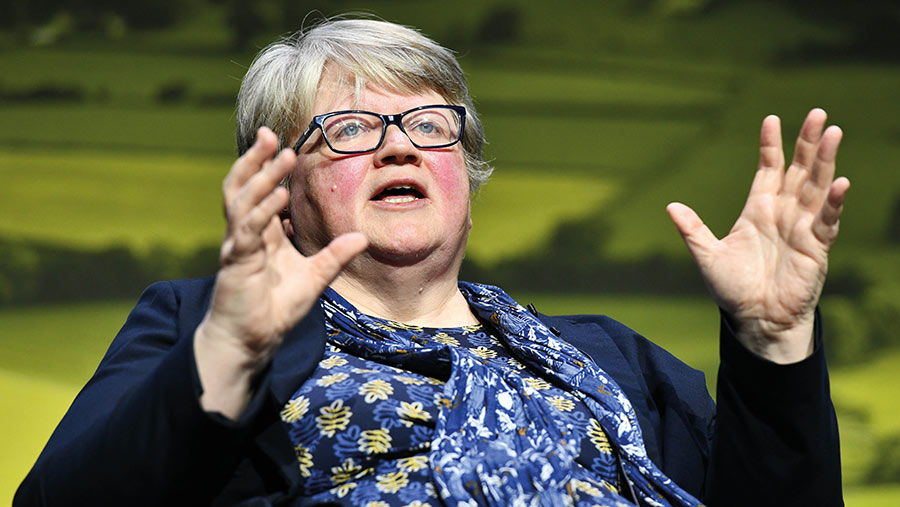Opinion: Defra secretary showed contempt for farming
 © NFU
© NFU My first piece for Farmers Weekly, headlined “First and foremost, farming is about food”, appeared in 2016.
In the immediate wake of the vote to leave the EU (and the CAP), I suggested that – even with the then-settled state of the world – perhaps we might give some thought to food production among the bright lights and pretty colours of Michael Gove’s “public money for public goods”.
See also: Opinion: maybe I should just buy machinery to distract myself
Six years on, the world has changed. We’ve experienced pandemic, climate breakdown, and war is raging in Europe.
As 1,400 farmers gathered to listen to the Defra secretary, Therese Coffey, at the NFU’s annual conference in Birmingham on 22 February, multiple market failures were in evidence across the food supply chain, as nationwide shortages of eggs, fruit, salad greens and vegetables made front-page news.
Lack of labour, input inflation, an unfavourable trading environment, reductions in government support, disease, climate and an unfair supply chain are combining to force farmers out of production.
Rural charities are reporting record demand for their help. It feels like we’re at a breaking point.
And yet, after a pedestrian speech which made no attempt to acknowledge the changed state of the world since 2016, Ms Coffey became actively hostile to her interviewer, NFU president Minette Batters, and the audience.
As the atmosphere in the auditorium turned frosty, many perhaps thought back to the smooth, empathetic speech by Labour leader Sir Keir Starmer the previous day, as he pitched for the rural vote.
The open contempt shown by the secretary of state for the industry and its concerns, and her outright denial that the food market was in turmoil (despite retailers introducing rationing as she spoke), crystallised for many the implicit disdain felt by farmers from the government, alongside a ministerial disconnect from reality.
In recent months, I have been able to ask both Rishi Sunak and farming minister Mark Spencer whether they believe that the £2.4bn inherited from the CAP is enough to deliver both sustainable food and the government’s legally binding environmental objectives – not least because inflation has eroded its true value to the tune of nearly £1bn since the sum was agreed in 2013.
Both were open to the conversation. Yet at the conference Ms Coffey brusquely dismissed that there was any case for more to be spent from a government budget of more than £1trn.
The issue of finance is the whole ball game, however. You will not fund a historic turnaround in the state of our natural environment and climate with the equivalent of the Treasury’s pocket lint.
That is before the urgent need to reformulate agricultural policy and align it with health, trade, security and the “levelling up” of rural constituencies, rather than treat it as a single-issue, environmental bubble.
The days of the “leave it to Tesco” approach, formulated on ever-cheaper food, abundant availability, stable weather and benign geopolitics, are numbered.
In 2016, I perhaps flippantly wrote that I had “never heard of a riot caused by a lack of pollen and nectar mix”.
Today, I am less flippant, but would repeat the implied warning: food security is no joke; we must stop treating it as one. Empty shelves and strained budgets are stark testimony to that.

